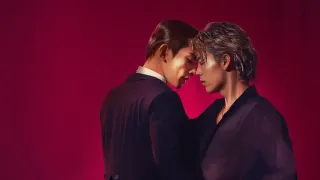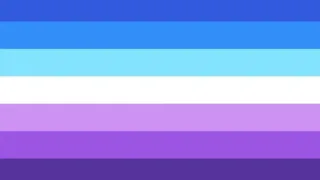May 10, 2021
Inclusivity Isn't Just 'In' Style: It is Style
Kilian Melloy READ TIME: 3 MIN.
Fashion brands are increasingly adopting a new style statement: Inclusivity. In turn, they are gaining credibility and respect from marginalized market sectors along with visibility.
A circle of inclusivity and visibility between designers, the communities they represent and market to, and the inevitable nimbus of celebrity that gathers around the luminaries of the fashion world was the subject of a recent Popsugar article that interviews just over half a dozen LGBTQ designers. These designers are "creating a world where fashion isn't for men or for women, but for feeling seen."
Queer men working in fashion is nothing new, but where yesterday's norms might have been an embrace of a kind of "don't ask, don't tell," today's out designers, like Christian Cowan (the designer behind Lady Gaga's pink glitter suit, Popsugar recalled), can make their identity - and the sensibilities that are informed by that identity - both selling point and creative font. Flamboyance, after all, can be fabulous, and, as Cowan noted to Popsugar, fashion "is an industry that is built on queer talent."
Cowan recalled to Popsugar that when the world saw Gaga wearing his creation, he "saw a woman celebrating the queer community in mainstream media." In turn, "it made me feel seen and appreciated."
There's a broader range of expressiveness – and a wider sense of invitation – that comes with expansive inclusivity. Fashion, once the preserve of the Venus-like beauty, the long-legged gamine, the muscular macho man, and the mesomorph, is now welcoming (and marketing to) people of all shapes, sizes, colors, and genders into its big tent.
That aesthetic was taking root long before now, as any "sudden" cultural shift does, with designers like Jean Paul Gautier helping to pave the way; Gautier's sensibility, openly gay designer August Getty noted in the Popsugar piece, "skewers gender binaries, incorporates a wide variety of cultures, and is made for different body types, among other things."
Such instincts are also at work in the work of designers like Fresco Steez, a queer Black community organizer and fashion designer who, EDGE noted in a profile, has approached her work "as a representation of Black Culture, Black political history, and Black art and design." Can there be any more definitive proof of a clothing artist's leading-edge bona fides than those in power seeking to snatch and suppress their work, as when officials confiscated thousands of Steez's "Stop Killing Black People" face masks?
That trend toward broader inclusion and bolder creativity extends beyond fabrics and into fragrances. As previously reported at EDGE, boutique purveyors of fragrances (Carta Fragrances) and more commercial firms (Old Spice) alike are venturing beyond "floral" and "musky" the same way clothiers are investigating the potentials beyond "pink" and "blue," or "masculine" cuts and "feminine" ones.
But is all of this more a matter of marketing than principles? And do "gender-free" styles end up reinforcing traditional gender notions and the looks, roles, and modes of conduct that are expected to follow?
Perhaps there's no reason not to have both, just as there's no reason not to have a healthy bottom line right along with graceful and gender/class/color-blind silhouette. Designers are in business, and that business ultimately comes down to sales. But beyond the symbiosis of creativity and capitalism, there are other forces at work, such as sustainability. Even those who are not creative visionaries can see the wisdom in helping ensure resources will remain to draw on for all of tomorrow's styles.
That extends to the human factor of the entrepreneurial equation: You don't have to be a bleeding heart to want to pursue human rights and haute couture all the same time. Such, noted Popsugar, is one of the tenets behind Nicole Zizi's creations, which incorporate recycling, fair trade, and an ethical production model right along with a desire to move "away from skewed media and societal based perspectives of what we 'should' or are 'supposed to' look like."
"It won't even be 'women's fashion' and 'men's fashion,' " Zizi said, envisioning a more equitable future; "it's just going to be 'fashion.'"






